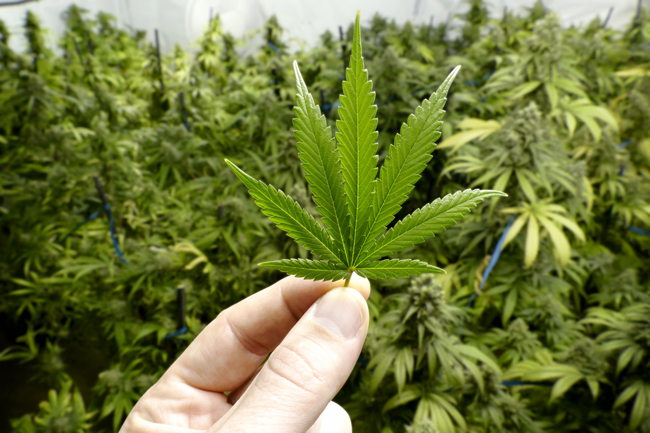Legalizing marijuana in Canada – what will it mean?

When marijuana legalization is enacted across Canada, it will create arguably the biggest legal cannabis economy in the world.
That change is the genesis of a conference entitled Legalizing Marijuana in Canada: Policy Challenges being held April 26 and 27, by the McGill Institute for Health and Social Policy (IHSP), at the Moot Court in the McGill Faculty of Law. Tickets are $25 for students and $100 for members of the general public.
Daniel Weinstock, the head of the IHSP and the lead organizer of the conference, says legalization raises a wide range of thorny policy issues.
One of the thorniest is the health impact of legalization on young people.
Daniel Weinstock, Director of the McGill Institute for Health and Social Policy.
“There is ample evidence that marijuana use poses the most significant mental health risks for adolescents and young adults,” says Weinstock. “It will be essential that we monitor very closely how effective the policies are, and that we be open to amending those policies if we see that we have not effectively reduced risk. At the level of public safety, it seems that we are not quite ready with respect to measuring levels of the psychoactive ingredients of cannabis, or as effective as we are in the case of alcohol. Road safety is also a great concern.”
Weinstock says legalization has implications for the campus. “McGill will have to make its own decisions about use on campus,” he says. “If we ban it everywhere, will we be able to enforce the ban? We allow students to drink in designated spaces such as student pubs. If we do decide to ban marijuana use on campus completely, what would the rationale be for treating the two legal substances differently?”
At the conference, Senator Vern White, the former Ottawa police chief, will speak on law enforcement. Researchers from the Institut National de Santé publique du Québec will address policy decisions to be made within Quebec’s jurisdiction. The Mayor of NDG–Côte des Neiges Sue Montgomery will give the perspective of the city, which will have to make decisions about where marijuana can be consumed. Chief Gina Deer and Chief Rhonda Kirby from the Mohawk Council of Kahnawake will speak about the specific concerns of Mohawk leadership.
Weinstock is particularly pleased to have representatives from Uruguay and Portugal present at the conference. “Uruguay is the state that has come closest to doing what Canada is doing, while keeping other drugs within the sphere of the criminal law,” he says. “Portugal is relevant because it is the only country to have taken the ‘harm reduction’ logic to its logical extreme, which is that the ‘war on drugs’ through the criminal law does more harm than good, and that prevention and control should be achieved through public health, rather than criminal policies.”
The conference is intended for any citizen who is concerned or interested in this huge shift in public policy. Speakers have been asked to address a generalist audience and to come up with one concrete policy suggestion.
420 Intel is Your Source for Marijuana News
420 Intel Canada is your leading news source for the Canadian cannabis industry. Get the latest updates on Canadian cannabis stocks and developments on how Canada continues to be a major player in the worldwide recreational and medical cannabis industry.
420 Intel Canada is the Canadian Industry news outlet that will keep you updated on how these Canadian developments in recreational and medical marijuana will impact the country and the world. Our commitment is to bring you the most important cannabis news stories from across Canada every day of the week.
Marijuana industry news is a constant endeavor with new developments each day. For marijuana news across the True North, 420 Intel Canada promises to bring you quality, Canadian, cannabis industry news.
You can get 420 Intel news delivered directly to your inbox by signing up for our daily marijuana news, ensuring you’re always kept up to date on the ever-changing cannabis industry. To stay even better informed about marijuana legalization news follow us on Twitter, Facebook and LinkedIn.




